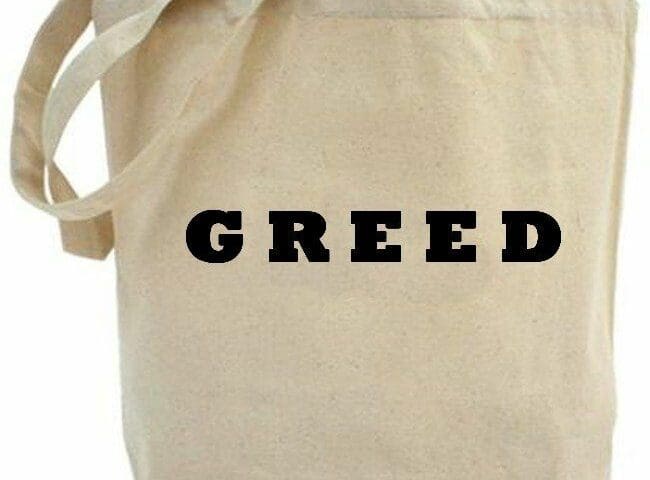

I’m not much of a fashionista. But I do pay attention to which recycled grocery bags I carry. And the one recently passed out to the voters on my block won’t be carrying my TJ’s groceries home. This capacious, green tote is promoting four Santa Monica City Council candidates and is paid for by a coalition of developers calling themselves “Santa Monicans United for a Responsible Future” – SMURF. If only they were those tiny blue trolls of cartoon yore. Instead the group is an association of those LLCs – limited liability companies – that Mitt Romney feels have human powers.
These particular LLCs are involved in numerous large development projects around Santa Monica and are facing a competing political independent expenditure campaign calling itself “Santa Monicans for Responsible Growth” (SMRG), which also is funded, but more modestly, by business interests. These two campaigns combined have raised nearly $450,000,
» Read more about: Money Bags: Shopping for Votes in Santa Monica »
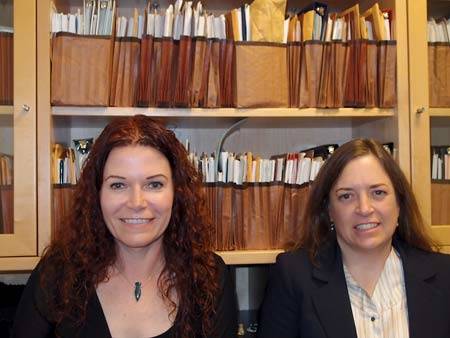

(This Berkeley Blog post is republished with permission and came to us via LA Progressive.)
About a million Americans — 100,000 of them in California — will spend Election Day as poll workers. Karin MacDonald and Bonnie Glaser, director and research specialist, respectively, at Berkeley Law’s Election Administration Research Center, say it’s a role that’s stressful and under-appreciated.
They should know. Since EARC’s inception in 2005, the two researchers have been looking at what it takes to conduct a fair, accurate and transparent election — and sharing EARC’s findings in the form of technical assistance to election officials (many of whom they know many on a first-name basis) and outreach to the public.
The two have delved into various aspects of the election process: poll-worker training, voter registration, early voting, absentee voting, voting by mail, polling-site management and more.
» Read more about: The Secret Lives of California Poll Workers »



It’s official: Americans for Responsible Leadership, the shadowy dark-money outfit that funneled $11 million from Arizona into the campaign supporting California’s Proposition 32 and the effort to defeat Proposition 30, was little more than a courier service for the Koch brothers.
Today’s San Jose Mercury News carried news about the fast-developing story that has gripped Sacramento since October 16:
A group tied to David and Charles Koch, the billionaire brothers who have played a huge role in spreading anonymous political cash around the country, was behind the shadowy Arizona group’s $11 million donation to a California business group.
That group is the Center to Protect Patient Rights, a known front for the Kochs’ political agenda. On October 25, a Frying Pan News post reported by Bill Raden first broke the story that the Kochs were probably responsible for the $11 million October Surprise.
» Read more about: Confirmed: Frying Pan News Story of Massive Koch Brothers Prop. 32 Donation »

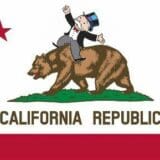
California’s Proposition 32 proposes outlawing the use of automatic payroll deductions from union members and corporations for political purposes. Backed by such labor-hating billionaires as the Koch Brothers, Charles Munger Jr., and by anti-marriage equality crusaders like Howard Ahmanson and Larry T. Smith, the measure will decimate unions’ ability to participate in the political process—stripping them of their considerable clout in the state. But that doesn’t mean Prop. 32 is purely about union-busting. Instead, the measure provides its wealthy backers with a means to an end — to eliminate organized labor as the most significant obstacle to imposing a corporate and fundamentalist religious agenda on an otherwise stalwart progressive state.
Prop. 32 isn’t an end game. It’s the beginning of a much larger conservative agenda for California. The only way to truly understand the potential impact of Prop. 32’s passage is to analyze the agenda of its backers.
» Read more about: 10 Ways Proposition 32 Would Hurt California »
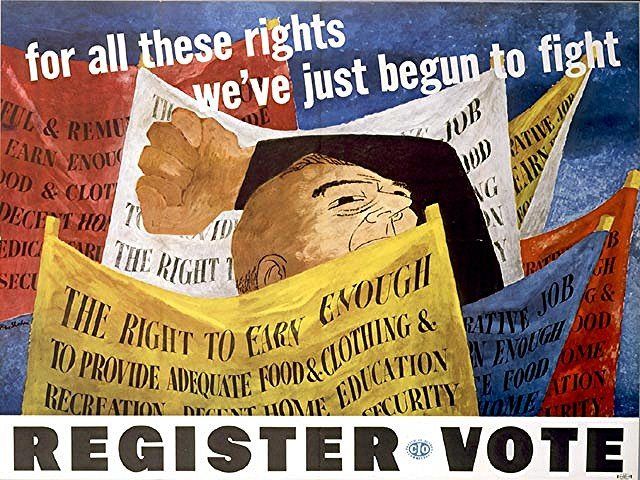
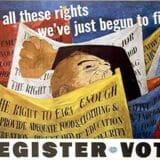
The California Secretary of State‘s website carries a complete list of candidates and descriptions of state ballot measures, including their pro and con arguments. Below is a sampling of six partisan organizations with summaries of their positions: California Labor Federation, Lincoln Club of Orange County, League of Conservation Voters, Tea Party, Courage Campaign’s Progressive Scorecard and the California Rifle and Pistol Association.
We’ve left the groups’ descriptions of ballot measures to give readers a flavor of their perspectives.
(Note: This piece is strictly informational. Frying Pan News is not offering endorsements.)
1. California Labor Federation
Unique Feature: Provides links to county labor federations and their local endorsements.
For President: Barack Obama
Ballot Measures
Proposition 30 Prevents school cuts.
» Read more about: Partisan Ballot Endorsements: A Short Sampling »


(Note: Among this election cycle’s most contentious ballot measures is Proposition 37, which involves the labeling of genetically modified foods purchased by consumers. Arguments pro and con can easily be found on the Internet or on television. Sheila Kuehl has provided, below, a more straightforward explanation of the measure. Frying Pan News neither endorses nor opposes Proposition 37.
Her post is republished here with permission, via LA Progressive.)
Prop. 37 would do three basic things:


Suppose the growth of the U.S. economy slows to a trickle. I don’t mean in the next quarter or next year or even over the next decade. I mean from this time forth.
That’s the prediction of Northwestern University economist Robert Gordon in a new paper that’s become the subject of widespread commentary.
Gordon writes that three industrial revolutions have taken place over the past 250 years: the first centered on the steam engine and railroads; the second based on electric power, the internal combustion engine and indoor plumbing; and the third rooted in computers and the Internet. By substituting mechanical power for human power in the production process and by greatly speeding up transportation and communication, Gordon asserts, the second revolution raised productivity and wealth far more than did the other two.
Indeed, U.S. productivity gains and the concomitant increase in wealth have slowed in recent decades from the levels the United States historically enjoyed.

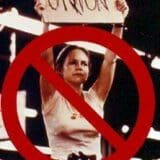
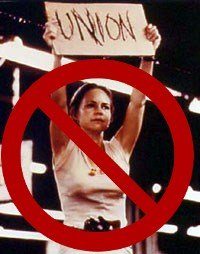 In 1978, California voters passed Proposition 13 – a ballot initiative that rolled back property taxes to 1975 levels and capped future increases at two percent. More destructively, it mandated that all future tax raises in the state be approved by the legislature by a two-thirds margin. The law presaged a wave of anti-taxation measures across the country that continues to define the political landscape we inhabit to this day. Ironically, while Prop. 13 was an effective carrier of the anti-taxation message, the rest of America soundly rejected the draconian policies Prop. 13 put into place to block the raising of tax revenues.
In 1978, California voters passed Proposition 13 – a ballot initiative that rolled back property taxes to 1975 levels and capped future increases at two percent. More destructively, it mandated that all future tax raises in the state be approved by the legislature by a two-thirds margin. The law presaged a wave of anti-taxation measures across the country that continues to define the political landscape we inhabit to this day. Ironically, while Prop. 13 was an effective carrier of the anti-taxation message, the rest of America soundly rejected the draconian policies Prop. 13 put into place to block the raising of tax revenues.
“The specifics of Prop. 13 were largely not adopted in other states,” explains Lenny Goldberg, Executive Director of the California Tax Reform Association. “Hardly any states enacted the two-thirds majority rule. And very few states treat taxes on commercial properties like Prop.
» Read more about: After Election Day: Two, Three, Many Prop. 32s »


(This opinion piece first appeared in today’s Los Angeles Times.)
The U.S. economy has turned a corner. The national unemployment rate hit a post-recession low of 7.8 percent in September. Rising consumer confidence, increasing home prices and other leading economic indicators confirm the trend.
Unemployment is still too high, but a focus on the number of jobs obscures a serious long-term crisis of declining wages and a shrinking middle class that is having a harder and harder time making ends meet. New jobs pay less, raises are rare and benefits even rarer. According to a National Employment Law Project study released in August, the majority of new jobs created in the last two years pay just $13.83 an hour or less. Nobel laureate economist Joseph Stiglitz recently said, “Increasing inequality means a weaker economy” for all of us.
» Read more about: Raising the Minimum Wage Is the Least We Can Do »
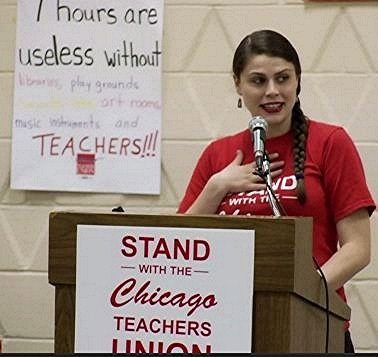
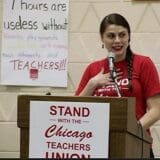
In September, 25,000 Members of the Chicago Teachers Union (CTU) stood strong on picket lines and flooded the streets of downtown Chicago in rallies, refusing to return to work until the school district and Mayor Rahm Emanuel came closer to their idea of fair in contract negotiations.
They prevailed. The teachers defeated merit pay, forced the district to hire 600 teachers and took care of laid-off workers. In doing so, they showed that teachers’ unions will not lie down, even as privatization encroaches. The teachers and unions also experienced an outpouring of support from activists and the general public.
How did CTU pull it off? What lessons are there to learn from the victory in Chicago?
A recent forum asked how CTU transformed its union in order to draw lessons for the future from the successful campaign. The forum was documented on video (posted above). Featured speakers are:
» Read more about: Chicago Teachers: How We Won Our Strike »


 Wells Fargo Bank and US Bank have chosen to celebrate Breast Cancer Awareness Month by trying to evict breast cancer survivors from their homes.
Wells Fargo Bank and US Bank have chosen to celebrate Breast Cancer Awareness Month by trying to evict breast cancer survivors from their homes.
Last week, Ana Casas Wilson — a wheelchair-bound woman with cerebral palsy and terminal stage-four breast cancer, and who has struggled for months to get Wells Fargo and US Bank to accept her money and stop foreclosing on her home of 40 years — received a final five-day notice to vacate from L.A. County Sheriff Lee Baca’s office. Wilson and her family briefly fell behind on her payments after she had to go into the hospital for a double mastectomy, as I described in an earlier post. She and her friends and supporters have launched a round-the-clock vigil at her home in a blue-collar suburb outside Los Angeles (8968 San Juan Ave., South Gate, CA 90280) to resist eviction, as the Los Angeles Times reported last week.
» Read more about: Foreclosures: Stop Cancer Survivor's Eviction! »
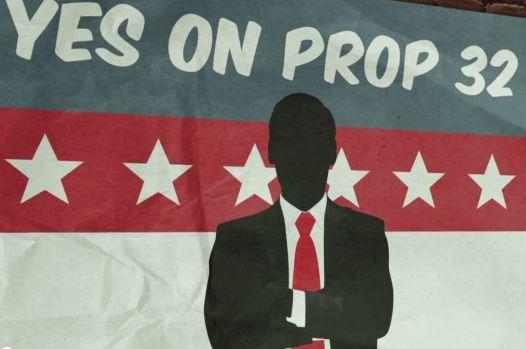

» Read more about: Proposition 32: "Corporations Know Best" »
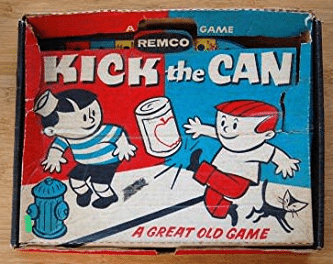
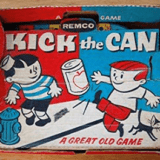
 “Kick the can down the road” may be a politician’s mantra, but it’s certainly not what some Native Americans meant when they spoke of the Seventh Generation. The Iroquois thought that decision-making ought to consider the impact on children yet to come. Politicians, on the other hand, pick the least painful path now and let someone else deal with the consequences 30 years from now.
“Kick the can down the road” may be a politician’s mantra, but it’s certainly not what some Native Americans meant when they spoke of the Seventh Generation. The Iroquois thought that decision-making ought to consider the impact on children yet to come. Politicians, on the other hand, pick the least painful path now and let someone else deal with the consequences 30 years from now.
The Los Angeles City Council just kicked the can. Its members, at the urging of the Mayor, voted almost unanimously to change the pension program for new civilian city employees. This policy change only applies to new hires and exempts police, firefighters and the employees of the Department of Water and Power. The plan reduces new workers’ pensions by two-thirds, eliminates health-care support for their spouses and decreases take-home pay during years when the stock market isn’t performing well enough to sustain retirement investments.
» Read more about: Pensions: City Kicks a Can Down the Road »

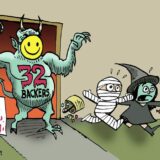
“We’re Up to $60 Million”
It’s an unreasonably warm October day, and I’m milling about awkwardly with a handful of suits at a mixer in a small banquet hall at Newport Beach’s Pacific Club—which, according to its website, is the gathering place of choice for the “distinctive life-style of Orange County’s business and professional leaders.”
An incredible thirst suddenly overwhelms me, as I look down and see I’ve practically sweated through my cheap suit. I try my best to keep control of my decorum, but when a busser passes by with a lone Arnold Palmer on his tray, I snatch it greedily from the outstretched hands of another guest and suck the saccharine concoction down in one gulp.
The hot weather may be playing a small role in my odd behavior, but my discomfort is mainly due to the fact this is no ordinary mixer. I’ve successfully infiltrated one of the most powerful and secretive Republican organizations in the country: The Lincoln Club of Orange County.
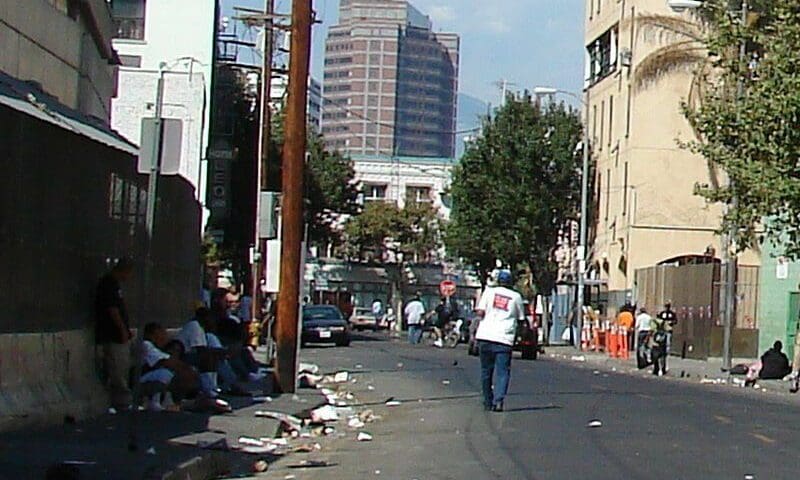
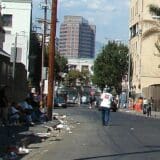
A recent story in The New York Times, back in its business section, had important news about inequality: “Income Inequality May Take Toll on Growth.” A couple of economists at the IMF reported research (here) showing that, across many countries, periods of greater income inequality tend to be followed by slow-downs in economic growth.
This is, actually, old news. About 20 years ago the research literature already showed that inequality probably damped the economy (see pp. 126ff here). But this remains important to repeat – not just because reporting the baleful effects of inequality now has the imprimatur of the IMF, but also because so many people still resist the news; they insist instead on believing the opposite, that inequality stimulates the economy, to the benefit of everyone. And, of course, this insistence has political implications right now.
» Read more about: Growth Is the Price of Income Inequality »


Frying Pan News reporter Matthew Fleischer discussed Proposition 32 on KPFK’s Uprising program Monday morning, joining host Sonali Kolhatkar (left) and Jessica Parra-Fitch (center), who talked about Prop. 37’s attempts to get genetically modified food labeling on the books in California.
» Read more about: Matthew Fleischer Discusses Proposition 32 on KPFK »
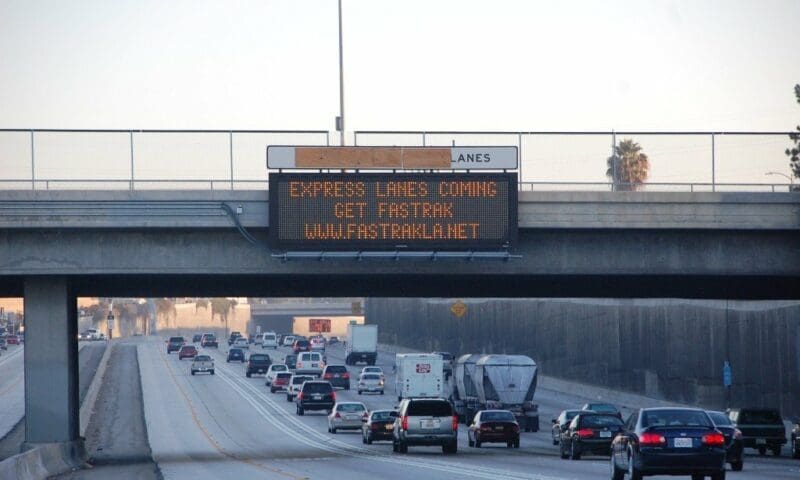
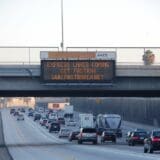
Starting on November 10, Los Angeles will begin a one-year experiment to convert High Occupancy Vehicle (HOV) lanes, better known as carpool lanes, to High Occupancy Toll (HOT) lanes on two major freeways. Toll lanes are not new to California drivers, but this is the first time we will see these lanes on L.A.’s busiest freeways.
The HOT lanes will allow lone drivers to access the current carpool lanes on the I-10 (beginning early 2013) and I-110 (November 10) freeways by paying a toll that changes based on the current level of traffic. Drivers who utilize carpools, van pools, buses and motorcycles will continue to access those lanes for free. (For more information on all the rules and details, check out Metro’s handy-dandy FAQ page.)
Metro argues that HOT lanes will reduce congestion in the regular lanes, and that all revenue from freeway tolls will go directly to fund improvements to public transportation and roads near the freeways where tolls are collected.
» Read more about: HOT Lanes Are Heating Up in Los Angeles »
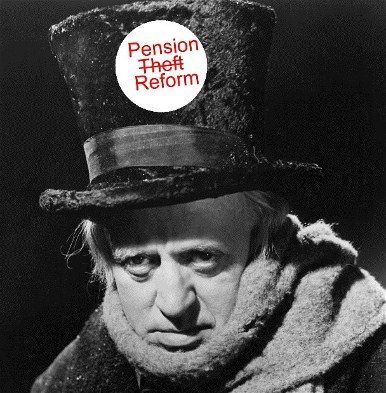
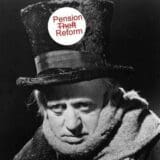
Former Los Angeles Mayor Richard Riordan is pushing a ballot initiative that would decimate city workers’ pensions and replace them with risky 401(k) plans.
Riordan is aiming more at voters’ emotions than he is at solving a budget issue. It won’t solve the city’s budget problems. If Riordan’s initiative gets on the ballot, it will only make things worse.
I’ve worked as a tree trimmer for the City of L.A. for 15 years. When thinking about Riordan’s plan, I want people in L.A. to ask themselves these questions: How is the pension I earn during my years with the city going to take food off your table or take money out of your pocket? How is my pension going to keep you from finding work or paying your rent and bills?
The answer is simple: My pension does not hurt your quality of life.
So, what’s the motivation for Riordan’s attack on retirement?


These pages are filled with stories of bad corporate actors — companies that attempt to boost profits by cutting labor costs at the expense of safe and ethical work environments. It’s a pleasure, then, to report on a multinational company’s CEO who is trying to make a difference.
Karl-Johan Persson, the CEO of H&M, recently traveled to Bangladesh, a country from which the fashion giant sources tons of textiles, to meet with Prime Minister Sheik Hasina and ask that textile workers be paid a fair wage.
The visit was pure activism as H&M does not actually own any Bangladeshi factories, it simply sources from the country. The argument Persson used with the PM is strikingly similar to that used by U.S. living wage advocates: A higher wage will be good for the country, not just workers.
Corporate Social Responsibility Newswire reports on the strategy behind the visit:
In addition to working with suppliers to increase wages,
» Read more about: A Responsible Persson: H&M's Boss Argues for Wage Hikes »